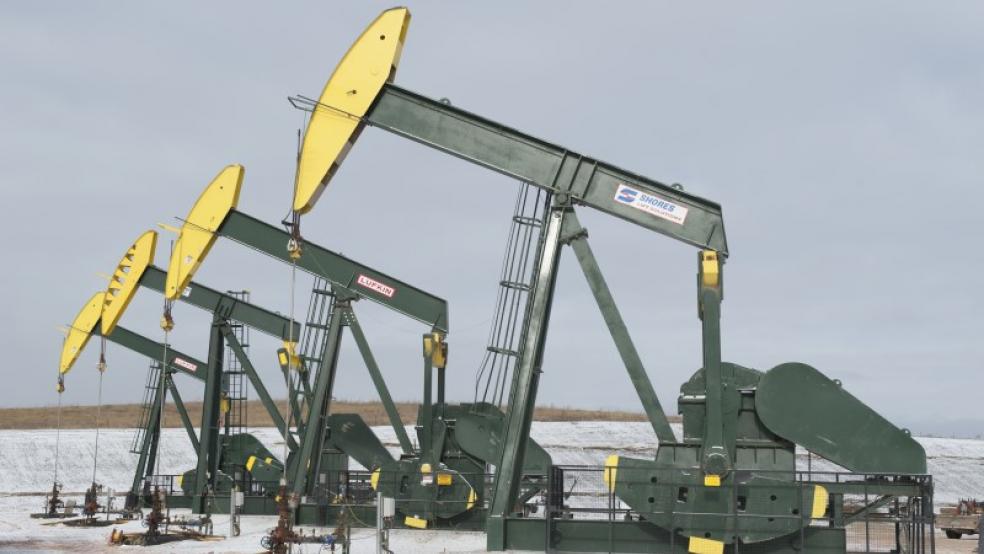LONDON (Reuters) - Oil rose for a second day on Thursday and briefly reached $66 a barrel, supported by expectations that a global supply glut is starting to ease and by fighting in Iraq.
The U.S. government's supply report on Wednesday showed crude inventories declined for a third week. Stockpiles had been at record levels due to excess supply, raising concern that storage tanks could fill up. [EIA/S]
Brent crude
hit $66 a barrel and by 1345 GMT was up 73 cents at $65.76. U.S. crude gained 82 cents at $59.80."Brent is getting a bit of impetus from the threat Islamic State is posing in Iraq," said Christopher Bellew, senior broker at Jefferies Bache. "I can see prices moving up further from here on geopolitics towards $70."In Iraq, the city of Ramadi fell to Islamic State on Sunday in the most significant setback for Iraqi security forces in nearly a year. On Thursday, Iraqi forces said they thwarted a third attempt by the militants to break through their defensive lines east of the city.Such attacks raise concern about the stability of oil flows from Iraq - OPEC's second-largest producer - but the insurgency has yet to affect its exports. Limiting oil's rally, a private survey showed Chinese factory activity contracted for a third month in May and output shrank at the fastest rate in just over a year. But the preliminary HSBC/Markit Purchasing Managers' Index prompted talk that more stimulus is needed for the world's second-largest economy - something that could support oil demand - and did not prevent Chinese equities hitting a seven-year high.Brent has rallied in 2015 from a near six-year low close to $45 in January. Taking turns in dominating sentiment are concerns about abundant current supplies and the prospect of a tighter market down the road.U.S. crude inventories are still higher than year-ago levels, suggesting the market is vulnerable to a renewed move lower, analysts at Commerzbank said in a report. "Shortages should not occur," the bank said. "We continue to envisage downside risks for oil prices." The price collapsed from $115 in June 2014 due to a supply glut, in a decline that deepened after the Organization of the Petroleum Exporting Countries dropped its policy of cutting output to support prices.OPEC meets on June 5 and is not expected to alter policy. (Additional reporting by Henning Gloystein and Florence Tan in Singapore; Editing by William Hardy and Ahmed Aboulenein)



